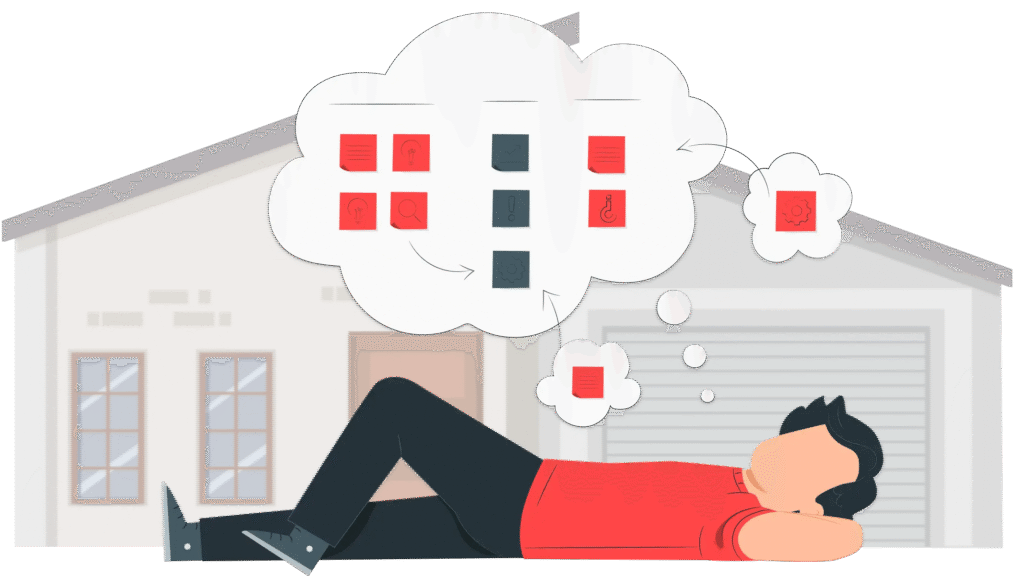Real estate investing offers many paths to building wealth, but one of the biggest decisions landlords face is whether to rent out their property short-term through platforms like Airbnb or stick with a traditional long-term lease.
Both strategies can generate strong returns, but the best option depends on your location, lifestyle, and financial goals. As travel trends evolve and rental regulations tighten in some areas, understanding the pros, cons, and profit potential of each approach is more important than ever.
Let’s break down how Airbnb and long-term rentals compare — and which might make more sense for you in 2025.
The Airbnb Model: Flexibility and Higher Income Potential

Airbnb has transformed the way people travel and how property owners generate income. Short-term rentals allow you to rent your home (or even a single room) to guests on a nightly or weekly basis.
The biggest advantage: higher potential revenue.
In popular tourist destinations or urban centers, nightly Airbnb rates can far exceed the equivalent monthly rent of a long-term tenant. For example, a property that might rent for $2,000 per month on a long-term lease could earn $4,000 to $5,000 in gross monthly income through Airbnb if booked most nights.
This flexibility also allows you to use the property personally when it’s not rented, giving you both income and convenience.
Pros of Airbnb rentals:
- Higher earning potential: Particularly in areas with strong tourism or limited hotel supply.
- Control over pricing: You can adjust rates based on demand, seasons, or special events.
- Personal use: Owners can block off dates for vacations or family stays.
- Frequent turnover: Easier to inspect the property regularly and address maintenance issues.
However, short-term rentals come with challenges that can impact profitability.
Cons of Airbnb rentals:
- Higher operational costs: Cleaning, maintenance, and utilities are ongoing expenses.
- Time commitment: Managing bookings, guest communications, and turnovers requires effort (or a management company, which takes a fee).
- Regulatory restrictions: Many cities are tightening rules or imposing taxes on short-term rentals.
- Inconsistent income: Occupancy rates can fluctuate seasonally, leading to unpredictable cash flow.
In short: Airbnb can yield higher gross income but comes with more volatility, regulation, and work.
Long-Term Rentals: Stability and Simplicity

The traditional long-term rental model involves leasing your property to a tenant for six months or more — often a year or longer. While the monthly income may be lower than Airbnb’s peak potential, the stability and predictability can make it a better fit for many investors.
Pros of long-term rentals:
- Steady income: Tenants typically pay monthly rent, providing consistent cash flow.
- Lower management burden: Fewer turnovers mean less time spent finding new renters.
- Lower costs: Tenants often pay for utilities and maintain the property.
- Fewer legal hurdles: Long-term leases are less affected by changing short-term rental laws.
- Easier financing: Lenders often view traditional rentals as less risky.
Long-term rentals are ideal for investors seeking passive income with less day-to-day involvement.
Cons of long-term rentals:
- Lower profit ceiling: You earn less compared to Airbnb in high-demand areas.
- Less flexibility: You can’t use the property personally while it’s rented.
- Tenant risk: A bad tenant can cause damage or fail to pay rent, and evictions can be time-consuming.
- Slower price adjustments: Rent increases typically happen annually, limiting your ability to respond to market changes.
In essence, long-term rentals trade higher potential profit for lower risk and easier management.
Profit Comparison: Numbers Tell the Story

Let’s look at a simplified example.
Scenario A: Airbnb
- Average nightly rate: $150
- Average occupancy: 70% (21 nights/month)
- Monthly gross income: $3,150
- Monthly expenses:
- Cleaning and supplies: $300
- Utilities and Wi-Fi: $200
- Maintenance and management: $350
- Taxes and fees: $200
- Net income: ~$2,100/month
Scenario B: Long-term rental
- Monthly rent: $2,000
- Tenant pays utilities
- Property management fee: $150
- Maintenance and vacancy reserve: $100
- Net income: ~$1,750/month
At first glance, Airbnb earns $350 more per month. But this margin can disappear quickly during slow seasons or if regulations limit short-term rentals.
For investors in tourist-heavy cities like Miami, Los Angeles, or Austin, Airbnb can outperform significantly. In smaller towns or suburbs with low travel demand, long-term leases often deliver better, steadier returns.
Key Factors to Consider Before Choosing

- Location
Airbnb thrives in vacation destinations, downtown areas, and near major events. Long-term rentals are safer bets in suburban neighborhoods or cities with stable job markets. - Local Laws
Always research municipal rules — some cities require licenses, limit stays, or ban short-term rentals entirely. - Your Time and Effort
Managing an Airbnb is like running a small business. If you prefer a more hands-off investment, long-term rentals may suit you better. - Cash Flow Goals
Do you need consistent monthly income or can you handle seasonal fluctuations? - Tax Implications
Airbnb income is taxed as business income, often with additional local occupancy taxes. Long-term rentals fall under standard rental income rules with potential depreciation benefits.
The Bottom Line
Both Airbnb and long-term rentals can be profitable — but success depends on matching your property, location, and goals to the right strategy.
- Choose Airbnb if you want to maximize returns, live in a high-demand area, and are comfortable managing turnover or hiring a manager.
- Choose long-term rentals if you value stability, predictability, and lower involvement.
In many cases, savvy investors combine both approaches — renting long-term during slower seasons and listing on Airbnb during peak months.
Ultimately, profitability isn’t just about numbers; it’s about finding the model that fits your lifestyle and risk tolerance. Whether you opt for flexibility or stability, real estate continues to be one of the most powerful tools for building long-term wealth.